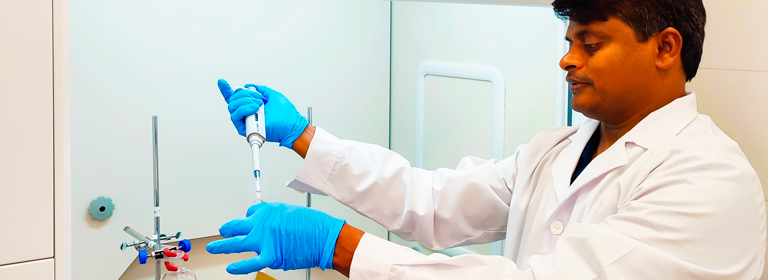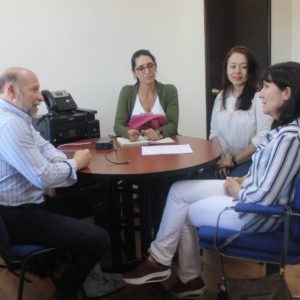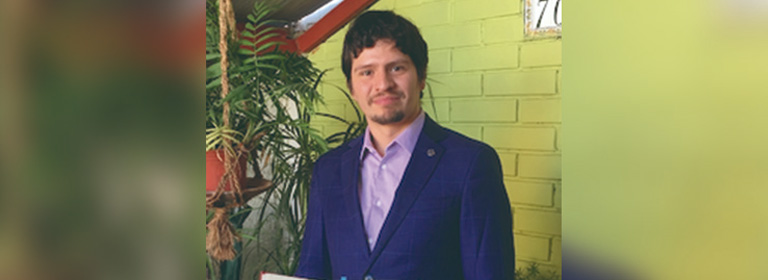Dr. Sathish Manda seeks to develop new methodologies to synthesize drug molecules, through a project funded by the National Agency for Research and Development (ANID).
Producing superacids with the potential to synthesize drugs such as antitumor and anti-inflammatory drugs is the objective of an ambitious project headed by the researcher of the Universidad Católica del Maule (UCM), Sathish Manda.
As one of the few experts in organic chemistry in Chile, the scientist has devoted his career to the search for new methodologies to synthesize chiral bioactive molecules, those that have a configuration that gives them the property of being non-overlapping images.
His initiative, aimed at creating the so-called “Brønsted” superacids, is funded by the National Agency for Research and Development, ANID, through the Regular Fondecyt call.
“This project obtained the eighth place in the evaluation group ‘Chemistry 2’ and received grade 5, corresponding to the maximum score for quality, feasibility and scientific or technological novelty”, said the academic of the Centro de Investigación en Estudios Avanzados del Maule (CIEAM), belonging to the campus.
The proposal of PhD. in Chemistry from Osmania University, in India, was selected along with more than 600 initiatives among 2,149 projects, among which organic chemistry is still an emerging area.
“One of the evaluators even pointed out that the work associated with the project is an excellent tool for the formation of a new generation of Chilean synthetic organic chemists, necessary for the national and international industry,” he added.
Pharmaceutical interest
In their assessment, the ANID evaluators specified that Dr. Manda’s proposal would lead to the construction of complex molecules of pharmaceutical interest such as natural products, by focusing on the design and synthesis of the so-called “organocatalysts”, which will be “novel, cheap in nature and stable”. Organocatalysts» are organic molecules that accelerate chemical reactions and are an alternative to metal catalysts, contributing to environmental sustainability.
The initiative will last four years and will count on the collaboration of professors from the Institute of Chemistry of Natural Resources of the University of Talca and the National Institute of Pharmaceutical Education and Research (NIPER) of India, Leonardo Silva-Santos and Nagula Shankaraiah, respectively.













